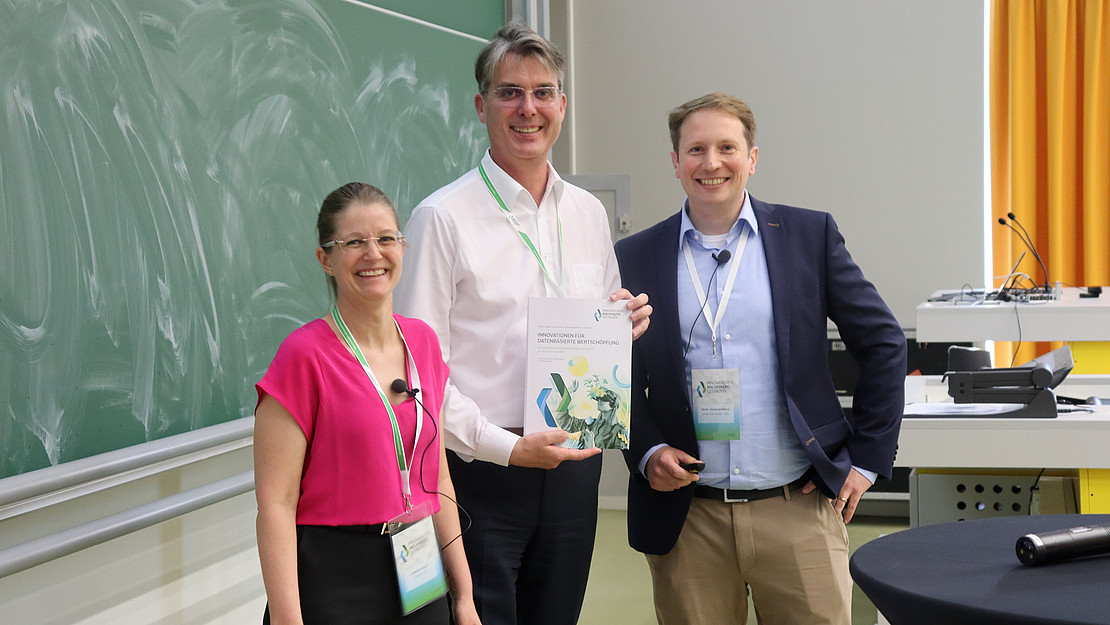This page contains automatically translated content.
Project completion: Sustainably shaping data-oriented value creation
 Image: Dennis Benner.
Image: Dennis Benner.The final conference of the project "Shaping Innovations Sustainably" took place on June 20, 2023 at the Campus Center of the University of Kassel, organized in close cooperation between the Department of Information Systems at the University of Kassel (Prof. Dr. Jan Marco Leimeister) and the Institute for Social Science Research - ISF Munich. There, 13 collaborative projects presented the new data-based services they had developed in pitch form. There was lively discussion on how such innovations can be designed sustainably and implemented practically. PD Dr. Christoph Peters (University of Kassel) and Barbara Langes (ISF Munich) led through the multifaceted program. The project results are accessible in a professionally prepared form in a book publication, which was also presented at the conference and ceremoniously handed over to Ralf Münchow, Officer at the Federal Ministry of Education and Research.
The conference also provided space for all stakeholders to get to know each other and exchange expertise and perspectives. Among others, five start-ups from Science Park Kassel also took part, presenting their sustainable solutions.
The question of how the German economy can intelligently and effectively dovetail technology and data orientation on the one hand and sustainability on the other dominated the event. A crucial prerequisite is the economic, ecological and social sustainability of innovations. The project networks addressed these challenges and discussed the establishment of sustainable innovation ecosystems, success factors of sustainable, data-oriented value creation and different forms of sustainable transfer such as spin-offs, the anchoring of data-based innovations in everyday business and work practice, exploitation by means of open source and the open handling of failures and learning culture.
The project was funded by the German Federal Ministry of Education and Research under the "Internet-based Services" funding guideline in the "Future of Value Creation" program. No fewer than 100 collaborative partners, including 51 small and medium-sized enterprises, and more than 300 people were involved in the project collaborations.
Contact:
PD Dr. Christoph Peters
University of Kassel
FG Business Informatics
E-mail: christoph.peters[at]uni-kassel[dot]de